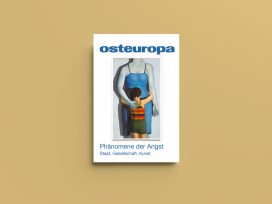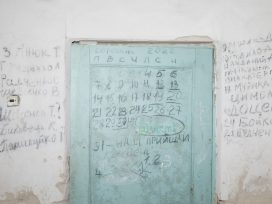What is left of the Maidan revolution three years after? Travelling to Kyiv for the Eurozine project “Beyond conflict stories: Revealing public debate in Ukraine”, Marina Lalovic from Radio3Mondo, Italy, spoke to journalists, representatives of civil society, and Italians living in Ukraine and working for the UN. She observed the energy of the city in a country where everything but the capital seems at war. Spoke to youngsters who claim that the new division is not between East and West, but between those who want to change things and those who continue to embrace the former traditional establishment.
Lalovic discussed the concept of patriotism and how to go about the reconstruction of Ukrainian national identity while searching for stability in everyday life. Being from Serbia herself, she looks for similarities and differences in the situation in the Balkans in the early 2000s.
The report was first broadcasted on 1 September 2016 on Radio3.rai.it and can be listened to in the Italian original here (starting min. 12’46”).







